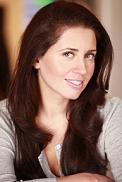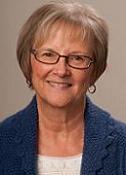Do you think the stigma often attached to self-publishing outweighs any benefits or would you consider it under certain circumstances?
"I’m considering it now. I like that there’s an option for further diversification as a freelance writer. This is a dangerous time to be stuck in the mindset that NY publishing is the pinnacle of success. As much as I like seeing my books in stores, I prefer food on the table." - Daniel Marks, author of Velveteen.

"It seems that the stigma of self-publishing is lessening daily, and there are circumstances where it can make sense, especially for traditionally published authors who have built an audience. It’s not something I’d consider at this early point in my career, but never say never." - Lenore Appelhans, author of Level 2.
 "I don’t know how to answer this question because I don’t know enough about self-publishing. My sense, though, is that it’s a viable option these days. The publishing industry is so rough, can be just brutal. If the gatekeepers are blocking you, it’s great to have another way of getting inside the kingdom. That said, an actual publishing house is hard to beat because the people there take care of the business end for you: distribution and marketing and publicizing and all that. Plus, they edit you. Which in my case, is a serious boon." - Lili Peloquin, author of The Innocents.
"I don’t know how to answer this question because I don’t know enough about self-publishing. My sense, though, is that it’s a viable option these days. The publishing industry is so rough, can be just brutal. If the gatekeepers are blocking you, it’s great to have another way of getting inside the kingdom. That said, an actual publishing house is hard to beat because the people there take care of the business end for you: distribution and marketing and publicizing and all that. Plus, they edit you. Which in my case, is a serious boon." - Lili Peloquin, author of The Innocents.  "In a sense, I came out of the self-publishing world. For years I produced zines, which included stories, comics, and art. I traded them with other zinesters. It's a great way of finding an audience on a local level, and I highly encourage it. I guess there is a stigma there, but it seems foolish to stigmatize people for trying to get their work into the world. These days my zinester spirit has largely moved to my website at stevenarntson.com, where I post book reviews, art, and other things that are smaller than books." - Steven Arntson, author of The Wrap-Up List.
"In a sense, I came out of the self-publishing world. For years I produced zines, which included stories, comics, and art. I traded them with other zinesters. It's a great way of finding an audience on a local level, and I highly encourage it. I guess there is a stigma there, but it seems foolish to stigmatize people for trying to get their work into the world. These days my zinester spirit has largely moved to my website at stevenarntson.com, where I post book reviews, art, and other things that are smaller than books." - Steven Arntson, author of The Wrap-Up List.
"I've learned to never say never. Who knows what the future will bring. To me, it's not so much about the stigma as it is about how to get noticed when there are more and more books being self-published every day. I don't want to spend a ton of time marketing - it's a lot of work. Plus, I like that with each MG and YA book I publish, there is the opportunity for foreign sales and getting into the school markets and other aspects I wouldn't get with self-publishing." - Lisa Schroeder, author of Falling for You.
 "I think the publishing world is changing very quickly, and while there’s still some stigma to being self-published, that may not be true a couple years from now. In fact I just released a digital version of my memoir Hungry:Lessons Learned on the Journey from Fat to Thin. It was originally published by a traditional publisher in hardcover, but I got the rights back and the book has found a whole new life and readership online." - Allen Zadoff, author of Since You Left Me.
"I think the publishing world is changing very quickly, and while there’s still some stigma to being self-published, that may not be true a couple years from now. In fact I just released a digital version of my memoir Hungry:Lessons Learned on the Journey from Fat to Thin. It was originally published by a traditional publisher in hardcover, but I got the rights back and the book has found a whole new life and readership online." - Allen Zadoff, author of Since You Left Me."Anyone writing today would be foolish to rule out self-publishing. A writer consumes too much time and creative energy to give up on the possibility of readers. But I would want to do it right, with an editor, copy editor, cover designer, and so on. Promotion would be the greatest challenge. Highly successful indie books are rare, and don’t happen by accident." - Pamela Mingle, author of Kissing Shakespeare.
"For me, it’s less an issue of stigma and more one of enjoying the benefits that come through trade publishing (having an agent, editors, copyeditors, marketing, retail distribution, etc). I can’t say I would never consider it, but it’s not a decision I would make lightly." - Kathleen Peacock, author of Hemlock.
"I think the stigma seems to be eroding with every new self-publishing success story and more traditionally published authors are turning a curious eye toward self-publishing. What I love most about traditional publishing is the strength my editor brings to my work, so I think the only way I'd consider self-publishing would be if I had a project that was wildly different from what I write or if I wanted to try something for fun." - Trish Doller, author of Something Like Normal.
"I don't actually think there is much stigma attached to self-publishing anymore. These days, I see more rants about the evils of traditional publishing (which makes me want to grab my shining armor and ride to the defence of my publishing house, HarperTeen. My editing team is sheer unadulterated awesome)." - Helen Keeble, autor of Fang Girl.

"I'd consider it, especially for sequels and freebies for fans, and continuations of fantasy series--things I just want to write, and would like to share, without worrying about deadlines, massive editorial revisions, and earning out advances. I'd also consider it for niche market books, experimental pieces, and stories likely to have limited markets." - Susan Vaught, author of Freaks Like Us.
On Thursday, find out if the rest of the authors would ever consider self-publishing.














































No comments:
Post a Comment